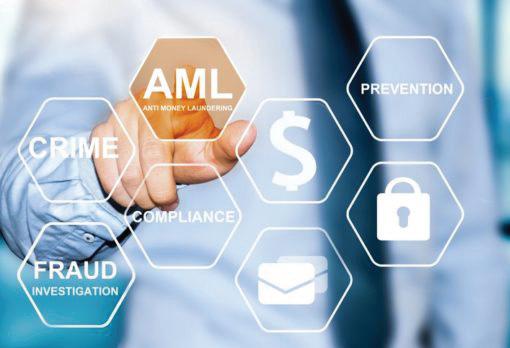
2 minute read
ANTI MONEY LAUNDERING BACK IN THE SPOTLIGHT FOR CONVEYANCERS
Recent AML audits by the SRA have once again highlighted the challenges of AML compliance for the conveyancing industry. As we know, conveyancing is one of the highest risk areas for AML so, if your practice hasn’t yet been audited by the SRA, the chances are that it will happen at some point in the future. With that in mind, we’ve put together a quick update for conveyancers with some practical tips to help with AML compliance.
What have the SRA audits identified?
Although emphasising that most law firms take AML very seriously, as a result of the audits, the SRA has identified that there can often be a difference between a firm’s AML policies and procedures and what actually happens in practice. Nearly two thirds of firms reviewed needed some form of engagement with the SRA and a further nine were referred to the SRA’s AML investigation team.
The SRA team found that half of the files they reviewed had issues such as lack of due diligence – examples included the client being known to the partners, expired documents and client due diligence records not being accessible to appropriate staff.
Additionally half of the firms the SRA dealt with were failing to carry out effective audits. For example, although the MLRO / MLCO can contribute to the audit, it needs to be overseen by an independent party.
A full report on the findings can be found on the SRA website(i).
To view the most up-to-date AML guidance compiled by the Legal Sector Affinity Group, please visit the Law Society website(ii). This guidance replaces the Law Society practice note on AML. • Automates your risk assessment based on multiple checks (number of checks depends on different profiles). • Provides automated screening of sanctions, PEPs and alert lists • Automates record keeping and audits, removing expired data • Offers both simplified and enhanced due diligence • Monitors compliance of clients and the firm, with downloadable reports • Ensures on-going due diligence, creating alerts for noncompliant documents or data
Please note, however, that it isn’t sufficient to merely rely upon an automated service to meet AML requirements. Law firms and more specifically, Money Laundering Compliance Officers, are still responsible for ensuring that clients are who they claim to be. This means ensuring a risk assessment policy is in place (and reflected in the AML service being used), that the automated service meets all your requirements and being aware of the sources of data used in assessments. The world of identity checking is changing very quickly so, if you already use an automated service, we recommend checking the latest features with your supplier.
The Geodesys AML service offers you all of the above features through a single AML dashboard that’s incorporated into our ordering site. You can carry out both a simplified or enhanced search and we can help you with setting up your risk profiles.
For further information of our AML service and to arrange a demo, please contact Kay Toon, Geodesys Account Manager on 07764 987259 or email kay.toon@geodesys.com
(i) https://www.sra.org.uk/globalassets/documents/sra/ research/anti-money-laundering-aml-visits-2019-2020.pdf
(ii) Legal Sector Affinity Group anti-money laundering guidance for the legal sector https://www.lawsociety.org.uk/en/topics/ anti-money-laundering/anti-money-laundering-guidance
How an electronic amL check can help
Although an electronic AML service can’t do all the work for you, it can certainly help your conveyancing team to meet many of the Directives’ requirements. The key features of an online service are that it:








